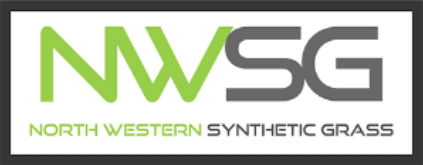As more and more Vancouver residents prioritize sustainable living, it's essential to consider every aspect of your lifestyle, including your home's landscaping. Traditional landscapes often require excessive water consumption, regular fertilizing, and chemical-based weed control, posing a threat to the environment. However, an increasing number of homeowners from Vancouver, Burnaby, Surrey, Langley, and throughout the Fraser Valley are now turning to artificial grass installations for a greener alternative.
Artificial grass, with its environmentally friendly attributes, has emerged as a crucial part of sustainable landscaping. By offering year-round vibrancy with minimal maintenance, artificial lawns contribute significantly towards water conservation, reduce chemical pollution, and lower carbon emissions associated with lawn maintenance equipment. Moreover, the long lifespan of artificial grass compared to natural grass presents a waste reduction advantage.
In this informative guide, we will walk you through the various environmental benefits offered by artificial grass. By increasing awareness about these benefits, we hope to inspire more homeowners in the region to opt for this sustainable solution for their landscaping needs.
Residential landscaping is more than just a visual aspect of your property. It's a statement on your commitment towards responsible living. By choosing artificial grass, you endorse a lifestyle that respects nature and contributes to environmental sustainability. More importantly, you do not compromise on aesthetics and functionality. Artificial grass installations ensure a lush, green landscape throughout the year, regardless of weather conditions or water restrictions, while eliminating the environmental impact associated with traditional lawns.
Join us as we delve into how artificial grass contributes to environmental sustainability, fostering a better understanding of this innovative landscaping solution and how it fits into your eco-friendly lifestyle goals. Your step towards artificial grass could inspire others around you, creating a larger impact on our collective environmental responsibility. Every change counts and together, we can make a significant difference!
Water Conservation: A Crucial Benefit of Artificial Grass
One of the most significant environmental advantages of artificial grass is its contribution to water conservation. Residents of Vancouver and its surrounding areas are all too familiar with the need for water-wise landscaping due to the periodic water restrictions imposed. Consider the following benefits of artificial grass in terms of water conservation:
1. Reduced water usage: Traditional lawns consume vast amounts of water to maintain their lush, green appearance. Artificial grass, on the other hand, requires no irrigation, significantly reducing your water consumption and contributing to a more sustainable landscape.
2. No dependence on weather conditions: With artificial grass, your lawn remains green and vibrant regardless of rainfall or droughts. This eliminates the need for supplemental irrigation during dry spells, saving valuable water resources.
3. Lower water bills: A direct benefit of reduced water consumption is a decrease in your monthly water bills, allowing you to save money while contributing positively to the environment.
Chemical-Free Landscaping: Reducing Pollution and Promoting Sustainability
Traditional lawns often rely on fertilizers, pesticides, and herbicides to maintain their health and appearance. Unfortunately, these chemicals can leach into the soil and nearby water sources, negatively impacting the environment. Artificial grass provides a chemical-free solution for homeowners:
1. Elimination of harmful chemicals: Installing artificial grass negates the need for chemical products, substantially reducing the risk of soil and water contamination.
2. Protection of local wildlife: By avoiding chemicals in your landscape, you help preserve the natural habitat of local flora and fauna by fostering a safer environment for them to thrive.
3. Healthier living spaces: A chemical-free, artificial lawn creates a safer environment for children and pets who play outdoors, reducing the risk of exposure to potentially harmful substances.
Reducing Carbon Emissions and Energy Consumption
Another environmental advantage of artificial grass is its role in minimizing carbon emissions and energy consumption associated with traditional lawn maintenance equipment:
1. No need for gas-powered equipment: Regularly mowing, trimming, and blowing debris from natural lawns require gas-powered equipment, generating significant carbon emissions and noise pollution. Artificial grass eliminates this need, lowering your carbon footprint.
2. Reduced energy consumption: Electric lawn equipment runs on energy that may be derived from non-renewable sources. With an artificial lawn, the energy demand associated with lawn maintenance decreases.
3. Noise reduction: By eliminating the need for lawn maintenance, artificial grass installations contribute towards a quieter neighbourhood, allowing you to enjoy the serenity of your outdoor space.
Longevity and Waste Reduction: The Sustainable Lifespan of Artificial Grass
When assessing the environmental impact of any landscaping solution, it's essential to consider waste reduction and the lifespan of the materials involved:
1. Extended lifespan: High-quality artificial grass can last up to 20 years, ensuring a long-lasting, sustainable landscape.
2. Less yard waste: Since artificial grass doesn't require mowing or trimming, it significantly reduces the amount of green waste generated throughout its lifespan.
3. Recyclable materials: Many artificial grass products are manufactured using recyclable materials, mitigating the amount of waste that ends up in landfills when the product's life cycle is complete.
Conclusion
By converting to artificial grass, homeowners in Vancouver, Burnaby, Surrey, Langley, and the Fraser Valley contribute towards a more sustainable future while enjoying the benefits of a low-maintenance, aesthetically pleasing landscape. Whether your primary motivation is water conservation, reducing chemical pollution, minimizing carbon emissions, or waste reduction, artificial grass installations provide a practical and environmentally responsible landscaping solution.
As a property owner, embracing the environmental benefits of artificial grass creates a ripple effect. Neighbours, friends, and family may be inspired to join the movement toward sustainable and eco-friendly landscaping. Together, our collective efforts in adopting responsible solutions such as artificial grass can yield a significant positive impact on the environment, paving the way for a greener future for generations to come.
Visit the website of North Western Synthetic Grass for more information about our artificial grass installation in Vancouver.







